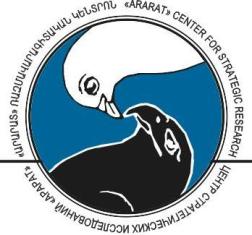
The participants include representatives of the general public, as well as state officials, politicians, public figures and experts. Anyone willing to participate in the survey can fill the questionnaire and send it to [email protected] In your response, please indicate your name, age (optional), profession and place of residence. Download the questionnnaire here (Word document): The survey covers three themes: Theme 1: Turkey?s policies on the Armenian Genocide issue. 1.1. How do you assess this move by the government of Turkey? Theme 2: Turkey?s stance on the Nagorno-Karabakh conflict. 2.1. What conclusions can be drawn from this statement by Erdogan? Theme 3: The invitation by the Government of the Republic of Armenia to Turkey to participate in the construction of the new nuclear power plant in Armenia. 3.1. In the context of the questions discussed above, how do you assess the February 21, 2009 statement by the Armenian Prime Minister, effectively inviting Turkey to participate in the construction of the new nuclear power plant in Armenia? Download the questionnnaire here (Word document): ADDITIONAL READING | ? |
The aims of “Ararat” Center for Strategic Research are as follows:
1. to analyze the developments in the international political arena affecting Armenia's interests and, based on those findings, to define the needs and demands of its national security;
2. to be of use to both decision-makers and the society at large by exploring the unique circumstances relating to Armenia's security and its priorities in all detail and with scrutiny;
3. to neutralize the anti-Armenian propaganda launched internationally by Azerbaijan and Turkey by means of regularly increasing the international community's awareness of Armenia's and Nagorno-Karabakh's positions presented to foreign audiences in the most comprehensible way; More…
